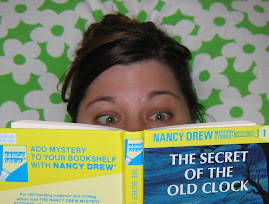Bibliographic Data
Farmer, Nancy. 2002. The House of the Scorpion. New York: Atheneum Books for Young Readers. ISBN 0-689-85222-3
Summary
Matt is a clone of the powerful El Patron. Although most clones’ brains are purposely damaged at birth, Matt has escaped that fate, but is treated like an animal by most humans. When El Patron dies, Matt escapes death by fleeing the country but is immediately imprisoned in an orphanage. Once again, he escapes his captors, and this time, he returns to his home to take his place as El Patron.
Critical Analysis
From the moment Farmer’s novel opens in a cloning lab, the reader understands that this is a fantasy set in the future. These are not experimental clones, they are human clones, and the one that has just been born is special. Instead of having his intelligence removed, he is spared because he is a Matteo Alacran. We learn more about this new world in later chapters. Matt is a resident of Opium, a country created from Mexico to act as a buffer between the United States and Aztlan. It is a country run by the drug lord El Patron, also known as Matteo Alacran, the donor of Matt’s DNA. Other, smaller changes have also taken place, such as new weapons, and types of transportation.
The disconnect between our world and this world of the future is evident in the way that Matt is viewed. We see him as a human, recognizing his intelligence, musical ability, and feelings. His humanity is ignored by most characters, and he is viewed as no better than any other animal; physically a younger version of El Patron, but mentally and emotionally, a beast. Only Celia, Maria and Tam Lin understand that Matt is more than what everyone else believes. Even Matt begins to believe in the futility of his existence, until Tam Lin reminds him that he has the power to choose the man he becomes:
“El Patron has his good side and his bad side… When he was young, he made a choice, like a tree does when it decides to grow one way or the other. He grew large and green until he shadowed over the whole forest, but most of his branches are twisted.”
Matt is not the only clone in this story. El Patron has used clones for a hundred years as organ donors and servants in his home and fields. These clones are given a drug at birth that removes their intelligence, essentially making them robotic and easily programmed – or so we think. Matt’s interaction with his teacher lets us know that while the “eejits” certainly have limited intelligence, they still have feelings, such as fear and confusion.
While at first glance, Opium seems an improbable land, one begins to wonder. For many years, we’ve heard stories about how the dangerous the area just beyond our border is. The US is very concerned about drugs and people entering the country illegally – would our government agree to look the other way if they could be assured the problem would stop? Strides continue to be made in cloning – is it possible we would go this far? Farmer creates a world that is just possible enough to help us suspend disbelief.
Reviews
From Publishers Weekly:
“Farmer's (A Girl Named Disaster; The Ear, the Eye and the Arm) novel may be futuristic, but it hits close to home, raising questions of what it means to be human, what is the value of life, and what are the responsibilities of a society. ” – Copyright 2002, Cahners Business Information, Inc.
From School Library Journal:
“Fans of Farmer's work will seek out this title. Some readers may be put off by its length, but those who dive in will find it worth the effort.” – Susan L. Rogers, Chestnut Hill Academy, PA. Copyright 2002, Reed Business Information, Inc.
Connections
The "eejits" have limited intelligence and emotion. Is it acceptable to create and then use them as servants? Why or why not?
*****
Reviews found at the Carrollton Public Library website, http://cityofcarrollton.com/library/

No comments:
Post a Comment